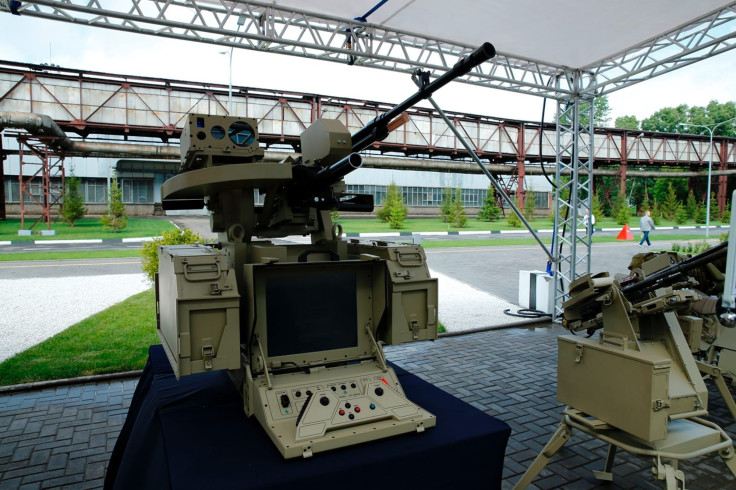Russian Killer Robots Won’t Be Hampered By United Nations

A United Nations meeting in Geneva earlier this month on lethal autonomous weapons systems (LAWS) was derailed when Russia said they would not adhere to any prohibitions on killer robots, according to Defense One.
The U.N. meeting appeared to be undermined both by Russia’s disinterest in it and the framework of the meeting itself. Member nations attempted to come in and define what LAWS' systems would be, and what restrictions could be developed around autonomous war machines, but no progress was made.
In a statement, Russia said that the lack of already developed war machines makes coming up with prohibitions on such machines difficult.
“According to the Russian Federation, the lack of working samples of such weapons systems remains the main problem in the discussion on LAWS…this can hardly be considered as an argument for taking preventive prohibitive or restrictive measures against LAWS being a by far more complex and wide class of weapons of which the current understanding of humankind is rather approximate,” read the statement.
One attendee of the meeting who asked to remain anonymous told Defense One they leveled blame on the lack of progress against Russia.
“The Russians are not interested in making progress on this,” said the source.
Human Rights Watch noted that Russia had been dragging its heels on the issue since January when it hadn’t even wanted the initial meeting to occur.
Others blamed the U.N. administrator Indian Ambassador Amandeep Singh Gil, for not keeping the meeting on track.
One Russian defense contractor, Kalashnikov, is already developing a weapons system where an artificial intelligence system determines and shoots at targets.
At the beginning of the month, a group of Canadian artificial intelligence experts asked that the Canadian government ban LAWS, echoing other tech leaders like Elon Musk who asked for a U.N. ban in August.
“Lethal autonomous weapons systems that remove meaningful human control from determining the legitimacy of targets and deploying lethal force sit on the wrong side of a clear moral line. To this end, we ask Canada to announce its support for the call to ban lethal autonomous weapons systems at the upcoming United Nations Conference on the Convention on Certain Conventional Weapons (CCW),” read the letter.

© Copyright IBTimes 2024. All rights reserved.




















